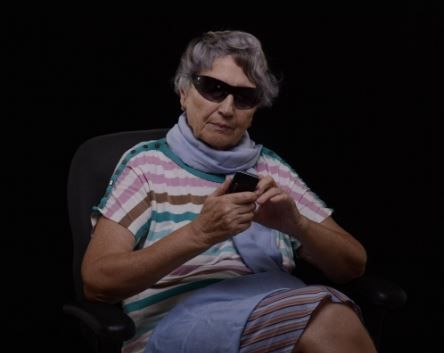- Clinical Technology
- Adult Immunization
- Hepatology
- Pediatric Immunization
- Screening
- Psychiatry
- Allergy
- Women's Health
- Cardiology
- Pediatrics
- Dermatology
- Endocrinology
- Pain Management
- Gastroenterology
- Infectious Disease
- Obesity Medicine
- Rheumatology
- Nephrology
- Neurology
- Pulmonology
Diabetes Self-care App: The Next New Rx?
At-hand reminders to check blood sugar or refill a prescription may be just what the doctor needs to order.

With the rise of personal tracking devices and explosion in mobile technology, there is a good deal of interest in whether the parallel trends can lead to useful and cost-effective solutions for medical illnesses. Take type 2 diabetes, for example.
In a recent study of 74 diabetic patients published in Health Affairs, a mobile phone-based program (CareSmarts) with automated self-management support features was able to help patients reduce HbA1c levels from 7.9% to 7.2% (p=0.01) during a 6-month period. The program is designed to send automated text messages to patients advising them on a number of health-related tasks, from checking blood sugar regularly to refilling medications in a timely manner. Some messages were question-based reminders whereas others were statements. Patients could interact with the program and respond via text messages. Occasionally, educational materials were also sent out to the patients and providers had access to any questions or information requested by the patient via the app.
The study cohort was comprised of patients with type 1 and type 2 diabetes who had access to and were able to use a personal cell phone. A group of 74 participants received the CareSmarts program while a control group of 274 participants did not. In addition to improvement in the HbA1c, costs were also lower with the intervention group by 8.8%, and there was a subsequent decline in the number and costs of outpatient visits. Overall, patient satisfaction was also higher in those who used the program. In comparison, the control group had no changes in HbA1c or in costs over the study period.
This app is among dozens now commercially available that accomplish similar tasks; some are even able to provide accurate patient tracking information (ie, blood pressure or blood sugar diary) for provider visits. The Food and Drug Administration has elected to abstain from regulating such mobile technology that does not directly interface with FDA regulated devices, such as glucometers or sphygmomanometers. However, this interesting study highlights the potential applications of such interventions as adjunctive agents to improve patient compliance and education.
There is enormous potential for such low-cost interventions to improve clinical and nonclinical outcomes in an era where technology has infiltrated nearly every aspect of daily life. So, not too long from now, a provider may write a prescription for metformin, and also consider writing one for a mobile health app at a follow-up visit.
References:
Nundy S, Dick JJ, Chou C-H, Nocon RS, Chin MH, Peek ME. Mobile phone diabetes project led to improved glycemic control and net savings for Chicago plan participants. Health Aff 2014; DOI: 10.1377/hlthaff.2013.058.
